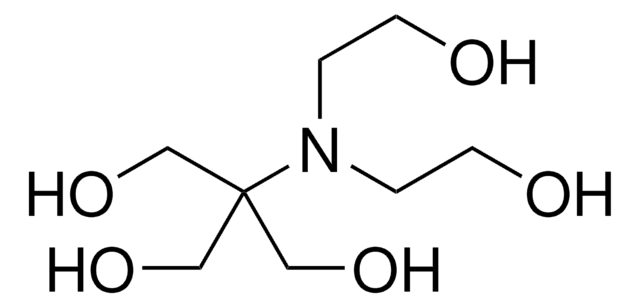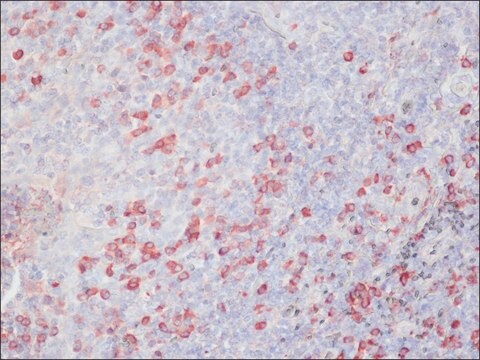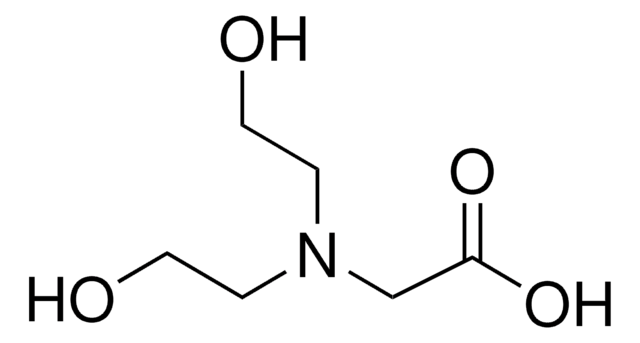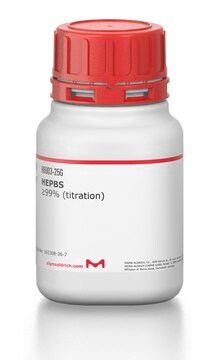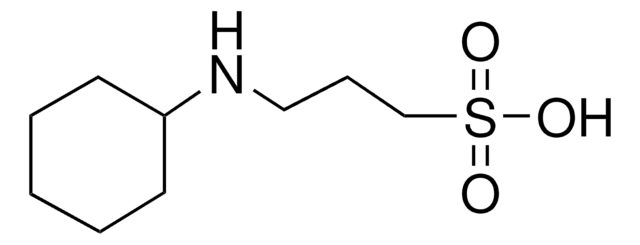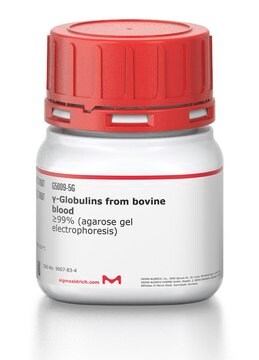B3876
BICINE
≥99% (titration)
Synonym(s):
N,N-Bis(2-hydroxyethyl)glycine
About This Item
Recommended Products
Quality Level
Assay
≥99% (titration)
form
powder or crystals
pH
3.5-5.0
useful pH range
7.6-9.0
pKa (25 °C)
8.3
solubility
water: 25 % (w/w), clear, colorless
application(s)
diagnostic assay manufacturing
storage temp.
room temp
SMILES string
OCCN(CCO)CC(O)=O
InChI
1S/C6H13NO4/c8-3-1-7(2-4-9)5-6(10)11/h8-9H,1-5H2,(H,10,11)
InChI key
FSVCELGFZIQNCK-UHFFFAOYSA-N
Looking for similar products? Visit Product Comparison Guide
Application
Legal Information
replaced by
Storage Class Code
11 - Combustible Solids
WGK
WGK 3
Flash Point(F)
Not applicable
Flash Point(C)
Not applicable
Personal Protective Equipment
Certificates of Analysis (COA)
Search for Certificates of Analysis (COA) by entering the products Lot/Batch Number. Lot and Batch Numbers can be found on a product’s label following the words ‘Lot’ or ‘Batch’.
Already Own This Product?
Find documentation for the products that you have recently purchased in the Document Library.
Protocols
Recycling Micro-Assay of β-NAD and β-NADH
Our team of scientists has experience in all areas of research including Life Science, Material Science, Chemical Synthesis, Chromatography, Analytical and many others.
Contact Technical Service